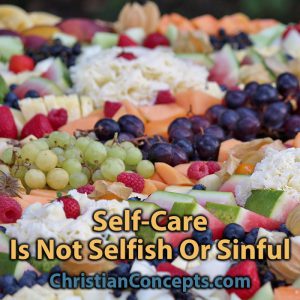Reading time: 4 minutes
What do you need most in your life right now? Do you have a greater need to forgive or to be forgiven?
When I recently considered the question, it surprised me. Is my suffering greater than the suffering I’ve caused? I like the question because it made me think. It’s a good question for self-examination.
However you answer the question, confession and repentance are necessary. The person who needs to be forgiven must release the debt so God can pay it. The person who needs to forgive must release the debt held against another. But this also requires God’s forgiveness for holding onto unforgiveness.
Jesus’s words about forgiveness cover this all too well.
If you forgive those who sin against you, your heavenly Father will forgive you. But if you refuse to forgive others, your Father will not forgive your sins.
Matthew 6:14-15 NLT
Forgiveness opens the heart to allow restorative healing.
What Does it Mean to Forgive?
Forgiveness is both simple and complicated. It’s both easy and hard. Forgiveness starts with opening your mouth and saying the words, “I forgive” or even “I want to forgive, help me forgive.”
For some people, that might seem like the hard part, but it’s really the easy part. It only takes a few seconds, and it’s done. It doesn’t cost much. And there’s quite a lot to gain. Eventually, the release brings peace of mind.
Forgiveness often feels counterintuitive—how could relinquishing our rights ever be in our best interest? It’s what makes it so hard to begin with. Forgiveness can feel like you are giving up all hope for any kind of return to normal, how everything was before the offense. In one sense, it’s true. To say “I forgive”, and mean it, is to walk away empty-handed.
But forgiveness done right is an appeal to a higher authority. It is a no-brainer kind of trade. I give up my rights in return for healing by God’s touch.
Everything we have comes from God anyway. So, can we say we ever had anything? In one sense, yes, but in another, no. Whatever we have, we lack the power to command it.
Job understood how to release and leave his heart open to God’s touch:
Job stood up and tore his robe in grief. Then he shaved his head and fell to the ground to worship. He said,
Job 1:20-22 NLT
“I came naked from my mother’s womb,
and I will be naked when I leave.
The Lord gave me what I had,
and the Lord has taken it away.
Praise the name of the Lord!”
In all of this, Job did not sin by blaming God.
Just as Job released his grief and trusted in God’s sovereignty, Jesus demonstrated the ultimate act of forgiveness, teaching us how surrender can lead to redemption.
Even as Jesus hung on the cross, His act of forgiveness brought immediate suffering, followed by death—a profound demonstration of the cost and courage forgiveness requires. When sorrow or fear sets in after saying ‘I forgive them,’ know that it’s a natural part of the healing journey. It is a real loss. You are saying goodbye. You are letting go of something that you can never have again. What is done is done.
Though forgiveness begins in pain and loss, its ultimate reward is renewal—a gift from God that replaces despair with hope. After you hit bottom, God provides a way out of the empty despair. In God’s hands, hope is resurrected through the new blessings He provides, carrying us toward a renewed purpose. What does God’s hope look like in your life today? What God makes new won’t be the same as what you lost, but it will be an opportunity to continue living for God. Jesus rested for three days, and then God resurrected Him. God wants to resurrect you, too.
What claims do you have on others that you need to release? Maybe the claim is against yourself. Perhaps the person you need to forgive most is yourself. You need forgiveness as much as everyone else. Don’t close your heart to God’s healing touch. Release and be resurrected.
Learn more about forgiveness.
Image by Виктория Бородинова from Pixabay
Last updated 20250330






